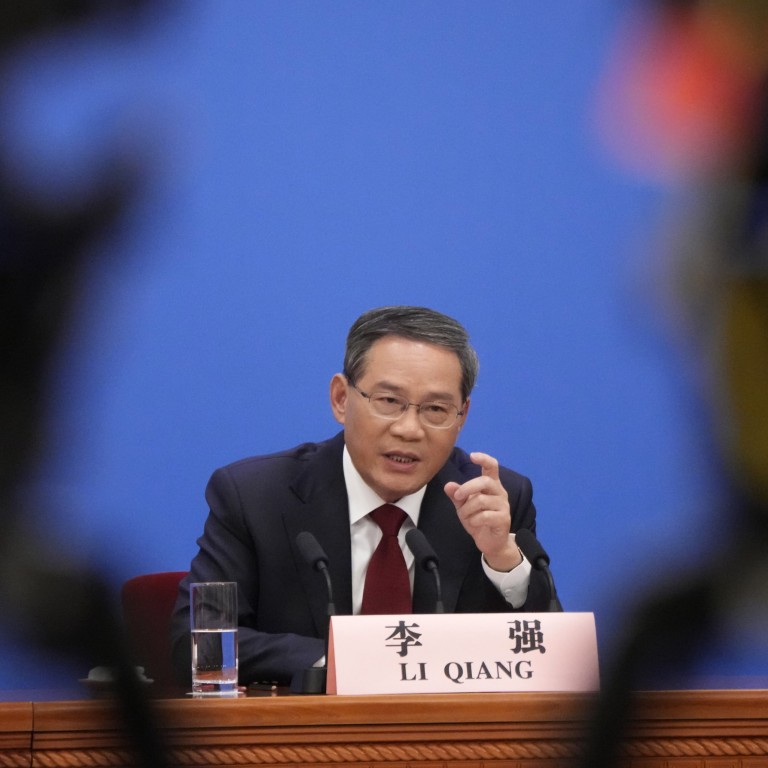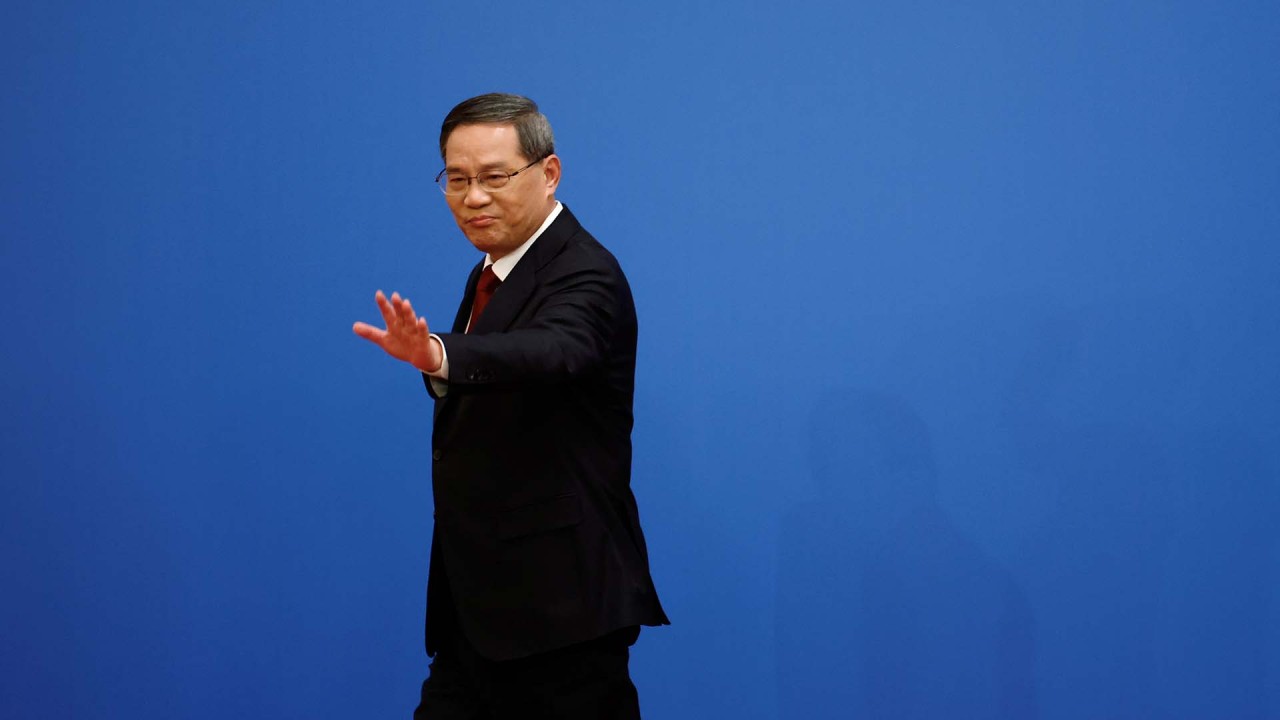
Chinese Premier Li Qiang stays close to home in his first big turn on the national stage
- Li addresses few international issues in his debut press conference after the close of the national legislature’s annual session
- Instead, he focuses on private enterprise and the need for government to help business
In comparison, his predecessor tackled China-US relations and China-Russia relations in his two-hour debut a decade ago.
And five years ago Li Keqiang kicked off his second five-year term as premier by addressing multiple diplomatic issues, offering updates not only on US-China ties but also on relations with Japan and tensions on the Korean peninsula.
Fast forward to Monday and Li Qiang, the former Shanghai Communist Party chief, was on firmer footing with domestic issues.
“When I sit in the office, all I see are problems; when I go to field research, all I see are solutions,” he said, telling cadres “sitting” in government offices to visit communities to get a feel for public opinion.
“When dealing with matters of administration and approvals, local governments should not just slam on the brakes but hit the accelerator, should not only put road blocks but put up road signs.”
It was part of a broader message about the need to promote the private economy, in which he called on entrepreneurs to have the same kind of determination and pioneering spirit that businesspeople displayed in the past to blaze trails.
His rallying cry included a slogan from the early days of the market economy in Jiangsu and Zhejiang provinces, when private entrepreneurs “travelled across thousands of mountains and rivers, spoke a thousand words, tried a thousand ways, and endured untold hardships” to do business.
During his responses, he referred back to his experience in rural areas and grass-roots government. That experience is not far behind him – Li Qiang left Shanghai just five months ago after two decades of managing coastal economies.
Li Keqiang, who governed the central province of Henan, and Liaoning in the country’s northeast, rarely recalled his regional governance experience in his press conferences as premier.
But the new premier does share at least one rhetorical preference with those who have gone before him – quoting idioms and referring to folklore.
Wen Jiabao, who preceded Li Keqiang as premier, often recited poetry and quotes from Chinese and foreign philosophers in his responses to media questions.
Li Qiang drew on Chinese traditional stories to convey China’s resilience in the face of difficulties, saying the economy would “break through the wind and waves and sail towards a brighter future”.
“These [stories] are all very inspirational, and they all tell of the spirit of not being afraid of difficulties, not fearing hardship and danger, of fighting bravely, and of striving for self-improvement. We Chinese will not be crushed by any difficulties.”
He also tried to present himself as in touch with the people.
When asked about hot-button livelihood issues attracting attention online, Li described himself as a “seasoned netizen” saying: “I’m willing to respond to the concerns of netizens. Whenever I have time, I’ll go to the internet to see what netizens are concerned about and if there’s any good advice.”
In all, the new premier dealt with 10 questions, one fewer than Li Keqiang did a decade ago and five fewer than five years ago.


